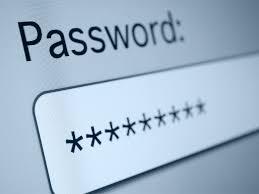
DIGITAL ASSETS – DO YOU HAVE ACCESS?
The rapid increase in usage of digital devices and the internet over the past 20 years, has, for all the benefits, created a huge additional burden on partners and families who have lost loved ones. Today we all have more accounts and assets than ever before, and they are an integral part of our lives: we pay bills, shop, order takeout, invest, communicate, do our jobs, and more – all online. During the same period of time, easy access to these accounts have dramatically decreased, due to requirements for more complex passwords, security questions, two-factor authentication, and because of the sheer amount of online accounts.
Estate planning attorneys will be the first to tell you that they are having more and more conversations about “digital assets” – that is, assets that don’t even live in a bank or investment accounts, or in insurance policies, but rather online. Venmo, Paypal, and Etsy are all examples of accounts that can actually have some measure of value, and they are often overlooked or inaccessible when an account owner dies.
This brings us to our ability to access and manage these assets, both during life and also after our deaths, whether or not there is actually any real monetary value attached to them.
Anyone who has lost a loved one recently knows first hand what it’s like to not have access to a decedent’s email, bank, shopping, and other online accounts. The loss of access can cripple cash flow and other administrative tasks, making settling an estate more difficult and slower than it needs to be.
While the old mantra used to be “never show anyone your passwords,” the new mantra is “make sure someone knows how to access your accounts.” One terrific tool that can help with this: password managers. Password management tools like DashLane, LastPass, and Keeper provide tremendous benefits, such as remembering your login credentials, creating secure passwords, dramatically reducing the chance that your accounts will be hacked, and making password organization a breeze. Further, these password managers all have provisions for giving someone access to your digital files, both during life and upon your death.
Further, tools like Everplans can help you organize, keep, and share copies of documents and information related to every aspect of your life – think health care (doctors names and numbers, medical records), legal (wills and trusts), home and property (utilities and mortgages), finances (bank and investment accounts), etc. And yes, there is a place in Everplans to document access to digital assets. (The creators of Everplans have just released a book called In Case You Get Hit By a Bus, the purchase of which currently buys you one free year of access to Everplans, an otherwise $75 value.)
Digital assets are here to stay. We can certainly count on the fact that we will collect more and more of them over the course of our lifetimes. Think about the ways in which you can make it easier for your family to access, close, or collect yours once you’re gone – your family will thank you for it.
